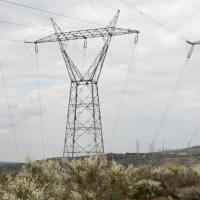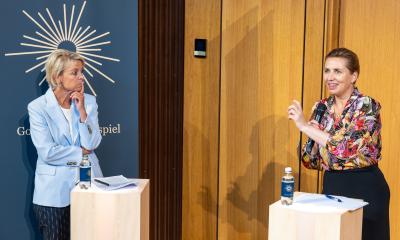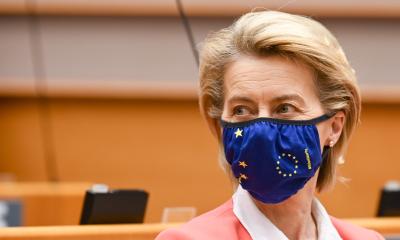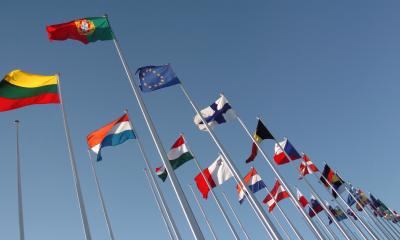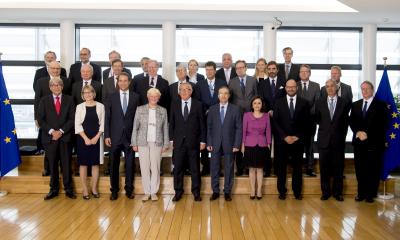Danish Attitudes Towards the EU and the World after Covid-19
Recent poll shows that Covid19 crisis increased Danes' trust in government, while the early response of the EU was too little, too late.
This text was written as a country report on Denmark for the EFCR Policy Brief, Together in Trauma: European and the World after Covid-19, based on a public opinion poll in nine EU countries carried out in late April and early May 2020.
Denmark was among the first European countries to implement a lockdown and close its borders in response to covid-19 but, so far, the emergency has not intensified to the extent it feared. The country is yet to use more than 138 of its 875 ventilators for coronavirus patients at any given time.
The first lockdown, which started on 13 March, applied to all public sector workers not employed in critical areas, as well as schools, institutions, and municipal services. The social democratic government led by Prime Minister Mette Frederiksen introduced emergency legislation to ban groups of more than 100 people and to enable it to enforce civilian health checks and limit access to public institutions and transport. According to one leading law professor, these steps are easily the most extreme encroachments on personal freedom in Denmark since the second world war.
The government also introduced support packages to mitigate the financial impact of the lockdown, including a prompt tripartite agreement with unions on temporary wage compensation. Five days into the lockdown, it implemented further restrictions on shops and restaurants, banning groups of more than ten people.
As the rise in covid-19 cases appeared to stabilise in early April, the government announced measures to gradually ease the lockdown. On 15 April, facilities for children in nurseries, kindergartens, and lower school grades reopened, followed the week after by some small businesses, including hairdressers. By mid-May, all schools and restaurants were permitted to reopen (the ban on large public gatherings is likely to remain in place until the end of August).
Closed borders and restrictions met broad approval with Danes
While Danish society reopened sooner than that of many other EU countries, the government’s approach to borders has been among the most restrictive in Europe. On 29 May, it announced that only citizens from Germany, Iceland, and Norway could re-enter Denmark from 15 June, provided they had accommodation for a minimum of six nights in a place outside Copenhagen. On 19 June, the government announced that, as of 27 June, it would extend this offer to citizens from any EU country with a low number of new covid-19 cases.
Relief that they had avoided the catastrophic scenes elsewhere in the world appears to inform Danes’ broad approval of the government’s response to covid-19 – and to have reinforced their trust in experts and the authorities. According to a recent survey by the European Council on Foreign Relations and YouGov, 79 per cent of Danish respondents say that the government responded well to the challenge.
The majority, 51 per cent, “strongly agree” – easily the greatest support across the nine countries surveyed. Even a plurality of supporters of the main opposition party, the Liberals, approve of the government’s response, while none of the ten parties represented in Parliament have a plurality of respondents that disapprove of this response. While such support is evenly spread across Denmark’s five regions and educational groups, it is more prevalent among women and older respondents.
Crisis increased Danes' trust in government
Denmark also distinguishes itself from other surveyed countries in other ways. Fifty-six per cent of Danish respondents said that the crisis increased their confidence in experts and the authorities, while 55 per cent said it had enhanced their faith in the government to manage the issues that affect their lives (a figure that is 20 percentage points higher than that in the two second-most-confident countries: Sweden and Portugal). These figures are consistent with Danes’ traditional levels of trust in political and societal institutions – which, according to Eurobarometer surveys, are often among the highest in the European Union.
But early EU efforts were too little to late
However, the EU has not emerged similarly unscathed. Thirty-five per cent of Danish respondents say that the bloc did not rise to the challenge, while just 23 per cent say that it did. There are significant differences in these perceptions across political and demographic groups. Most notable is the generational divide. For instance, 30 per cent of the youngest group of respondents (those under the age of 26) say that the EU handled the crisis well, while 19 per cent state that it did not.
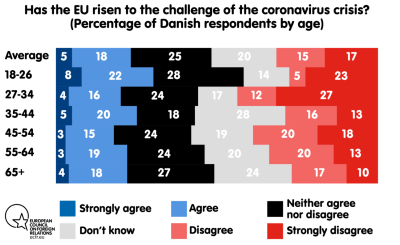

Nonetheless, for many Danes, the EU’s early efforts were too little, too late. For example, Denmark closed its borders three days before the European Commission issued guidelines on the issue. Moreover, stories about China having been quicker to provide medical supplies to Italy were widely cited in Denmark as an example of weak solidarity within the EU. However, the Danish authorities made few official references to EU cooperation in communications on the crisis. Measures at the national level were always much more visible to citizens than those at the European level.
Younger generation more inclined to believe in allies
Perhaps as a result of all this, Danes join other EU respondents in believing that their country has primarily relied on itself in handling covid-19. Twenty-nine per cent of Danish respondents hold this view, while 23 per cent see the World Health Organisation as their country’s greatest ally in the crisis, and just 9 per cent view the EU as having this role. However, in view of Danes’ long history of saying “no” to deeper European integration, many are unlikely to have expected, let alone demanded, a common EU approach to, for instance, healthcare issues and border closures. Again, there is a striking generational divide: whereas just 12 per cent of the youngest respondents felt that Denmark had to handle the situation alone, 41 per cent of the oldest respondents held this view.
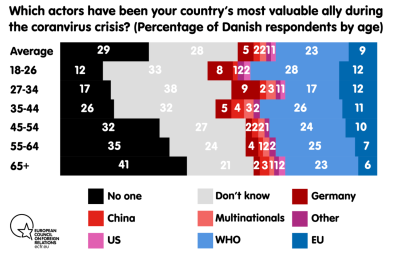

And there are other reasons to believe that the coronavirus crisis has not significantly altered long-standing Danish perceptions of the EU, which revolve around the bloc’s economic utility rather than its potential to develop into a federal organisation. Fifty-three per cent of Danish respondents state that there is a need for greater cooperation within the EU, while only 19 per cent say that integration has gone too far. Forty-eight per cent of them believe that the EU should develop a more common response to global threats and challenges in response to the crisis. Yet just 24 per cent of Danish respondents say they are prepared to share the financial burden of a crisis – the lowest figure among the nine surveyed countries.
Minority opinions want less free movement and more control
At the same time, there are important minority opinions that stand out as a pointer that the coronavirus crisis may be spurring some Danes to pull up the drawbridge. In a small, open economy, where traditionally the EU’s principle of free movement is cherished, it is notable when one in four respondents think that the crisis should make citizens reconsider working, living, and travelling abroad.
One in three Danish respondents say that they have become more accepting of the surveillance of individuals’ behaviour for reasons of public health. Forty-eight per cent of them now support stricter border controls. And 40 per cent think that businesses should be pushed to produce more medical supplies in the EU. Typically, these views are spread out rather evenly across regions, as well as educational and gender divides, and are held most strongly by older respondents.
The image of the US has deteriorated among Danes
In Denmark, as in other surveyed countries, public perceptions of the US have dramatically deteriorated. Seventy-one per cent of Danish respondents say their view of the US has worsened during the coronavirus crisis – the sharpest decline in any country. The traditional transatlanticism of Danish governments, and the fact that Denmark has an opt-out from EU defence cooperation, makes this trend all the more noteworthy. The worsened perception of the US is somewhat less widespread among those below the age of 35, but it is shared by more than 60 per cent of even this group. For Danish respondents, as for their counterparts elsewhere in the EU, the crisis has heightened their sense of vulnerability at the global level.
The Think Tank EUROPA does not take collective positions. This publication only represent the views of their individual authors.

